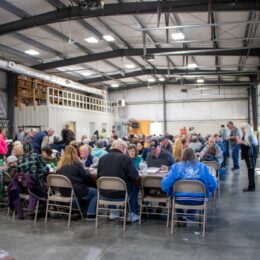
I recently read an article that the National Rural Electric Cooperative Association (NRECA) published, and I thought it would be helpful for our members to hear firsthand of how a manager/CEO and board of directors relationship should work vs. how it works here at your cooperative. Additionally, I thought how important this relationship directly translates to the cooperative and its members.
The board/CEO dynamic is among the most critical relationships at a co-op, with the power to impact long-term prosperity, employee morale, member engagement and other key facets. The secret to a healthy board-CEO relationship as well as the cooperative-member relationship can be summed up in one word: balance.
Balance comes from a mutual understanding of the roles and responsibilities entrusted to the CEO by the board as well as the cooperative by the members and a commitment not to cross established boundaries. The simple strategy for achieving that balance is to embrace conflict.
For many people, even myself and board members, the idea of deliberately creating conflict can seem contrary to what we’re taught throughout our lives. But management study after management study shows that conflict in the boardroom is a productive thing, so long as it’s healthy and respectful. Good conflict increases accountability, it helps foster new ideas, and it challenges everyone to grow.
For conflict to be productive in the boardroom, as well as with our members, everyone at the table must have equal standing. Changes in this standing, or power, can impact the board/CEO dynamic and ultimately the co-op. I define power as “the ability to get things done.”
The ideal board/CEO relationship as well as the cooperative/member relationship is where both parties enjoy a high level of power. In this space, there is balance, and the best interests of the co-op and its members are at the forefront.
The other three possibilities are detrimental to the health of the co-op. First, you might have a CEO who has the majority of the power and a compliant, “rubber stamp” board/membership. This model does have its supporters, but over time, the co-op risks ethical abuses, stagnation, low member engagement and non-responsive management. Second, you might have a co-op with a disengaged CEO and board, where the status quo reigns and no bold moves are taken. If it does not change, the co-op risks decline. Third, you could have the board and membership wielding the power, and the CEO is weak. This model of a micromanaging board also has its proponents, but it too is detrimental to the long-term health of the co-op, leading similarly to potential ethical abuses, stagnation, and low member engagement.
With the best option, the board serves as scout, advisor, strategic thinker and occasionally as cheerleader or even disciplinarian. The CEO takes on the role of leader and implementer, handling the responsibilities of the position with grace and dignity while ensuring that members and employees are treated equitably. There may be conflict, but it is between equals who respect one another’s roles.
My goal as the leader and implementer of the cooperative is to always remain aware of where this balance is for the reasons above. Your cooperative currently operates in the best option. The board of directors that represents you certainly does not act as a rubber stamp but allows and encourages me to share ideas to consider while the strategic plan of the co-op evolves.
The decision to bring you fiber as a service embodies our relationship well. If I did not trust the board to even listen to such a momentous idea, it would have never been discussed back in 2015. If the board did not require that data related to the project’s feasibility be obtained before moving forward, we could have announced a project or decided to never allow the data to contribute to the decision immediately. But that’s not how this or other decisions are made. The directors advised me of their informational needs, and I obtained the data. As a team, we allowed the project to stand on its own as it progressed. That is the relationship I strive for the cooperative to have with its members as well. If there are things that you do not understand about the cooperative, please ask. This ensures we strike the important balance needed for our cooperative to succeed.
Matthew C. Deaton
General Manager/CEO



